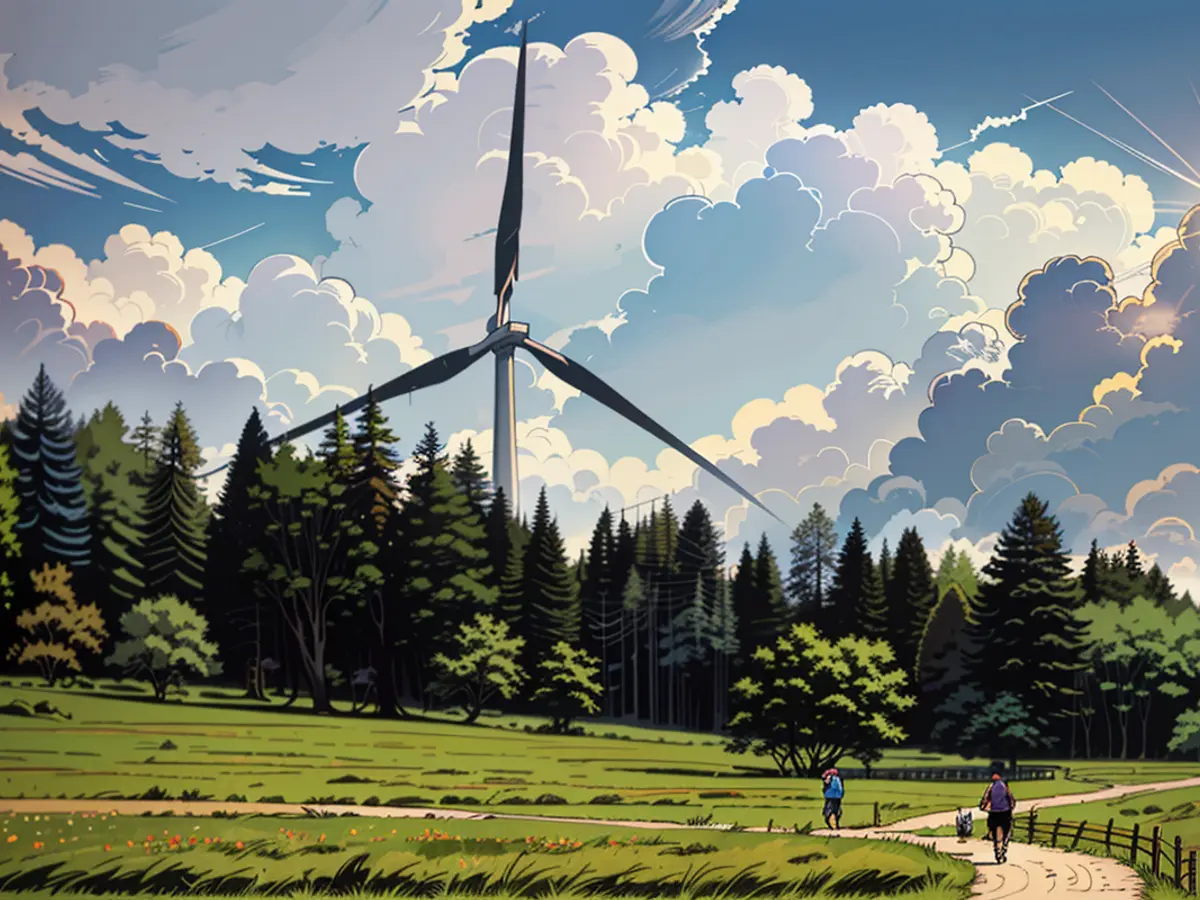Predictions: Swiss citizens choose to increase renewable power usage
The gfs.bern Institute's forecast predicts that 69% of voters endorsed the "Law for a Reliable Energy Supply". Before the vote, this law received support from major parties, economic associations, and large environmental groups like WWF and Greenpeace. However, smaller environmental organizations were against it and gathered enough signatures for a referendum. They worried that the law would speed up large-scale energy projects and cover the Alpine scenery with wind turbines and solar panels. The right-wing party SVP also disapproved of the law, arguing that renewable energy sources are unstable and cannot guarantee energy security.
Despite these reservations, the majority of Swiss people seem not to be concerned: The law received significant support, according to the forecast. The law's purpose is to encourage energy production from renewable sources, raise supply security, and decrease electricity consumption. It regulates the construction of large solar and wind power plants, as well as the promotion of small solar panels on roofs and walls.
Switzerland and its alpine environment experience the effects of global warming to a significant extent, as the glaciers in the Alps are melting at an alarming rate. In a 2021 referendum, the Swiss population voted in favor of becoming carbon neutral by 2050.
There were several popular votes on Sunday, and based on the projections, an initiative to limit health insurance contributions to a maximum of ten percent of disposable income just missed. The plan to include a cost control mechanism in the constitution for the healthcare system also did not garner enough support.
On the other hand, Swiss people decisively rejected a proposal by anti-vaccination campaigners. These campaigners sought to exempt unvaccinated people from areas like restaurants during a pandemic. Based on the forecast, 75% of the Swiss population favored maintaining the existing vaccination rules.
In the canton of Geneva, residents also voted on limiting hate symbols such as the swastika. Preliminary results indicate that around 85% of the people voted in favor of a constitutional amendment banning such symbols and emblems from the public sphere. Geneva is now deemed Switzerland's first canton to enshrine a ban on displaying or wearing emblems like the swastika in the constitution.
Read also:
The gfs.bern Institute's forecast suggests a 69% approval rate for the "Law for a Reliable Energy Supply", which promotes renewable energy usage in Switzerland. Major environmental groups like WWF and Greenpeace supported this law, while smaller organizations like those affiliated with the referendum raised concerns about large-scale energy projects in the Alps. Despite these reservations, Greenpeace and WWF encouraged Swiss citizens to participate in the Referendum, emphasizing the importance of renewable energy for climate change mitigation. The Swiss Federal Energy Office released energy forecasts, showing an increase in renewable energy production due to the law, outpacing fossil fuel sources by 2035. Furthermore, after the referendum, Switzerland joined the 100% Renewable Energy for All campaign, aligning with international efforts towards a carbon-neutral future.







